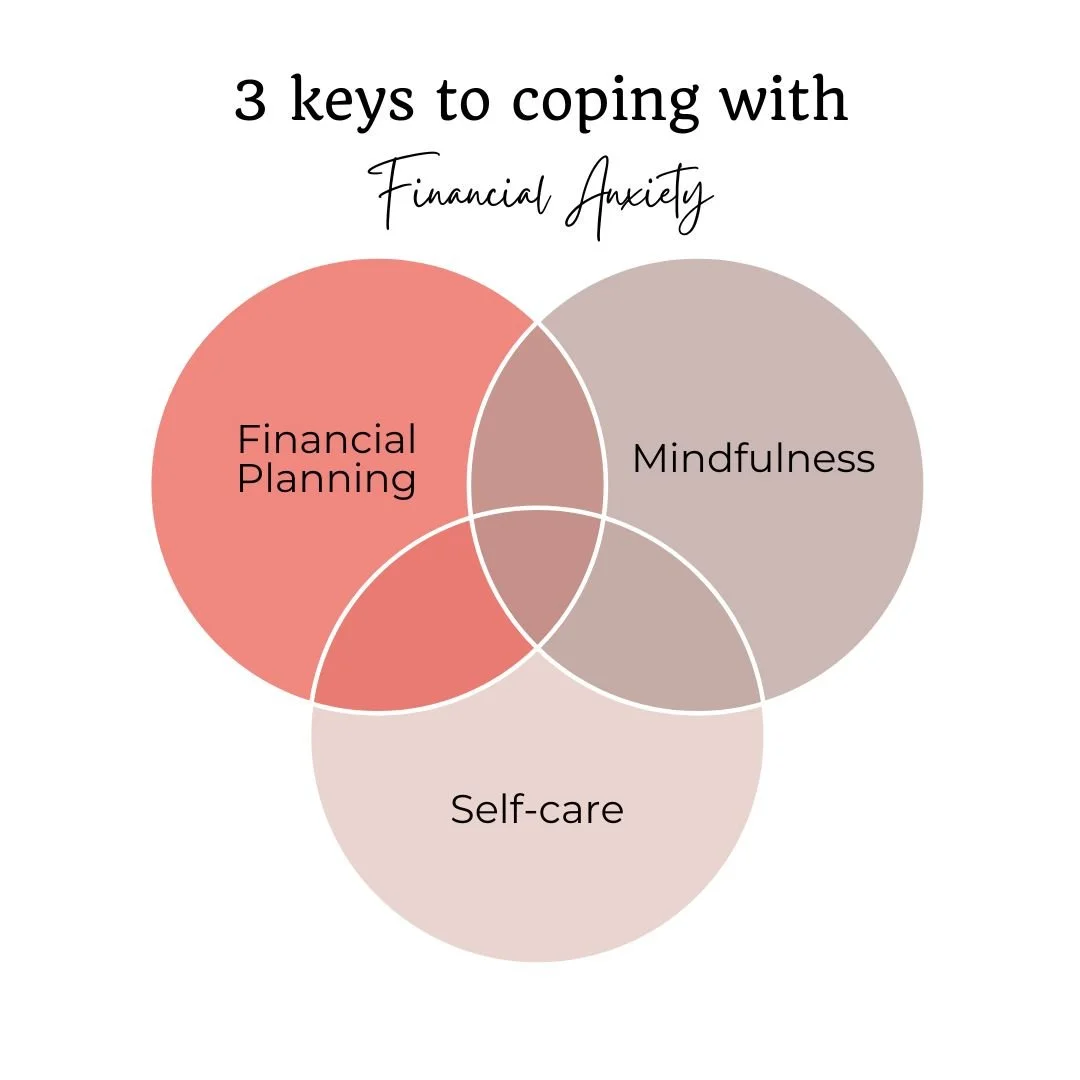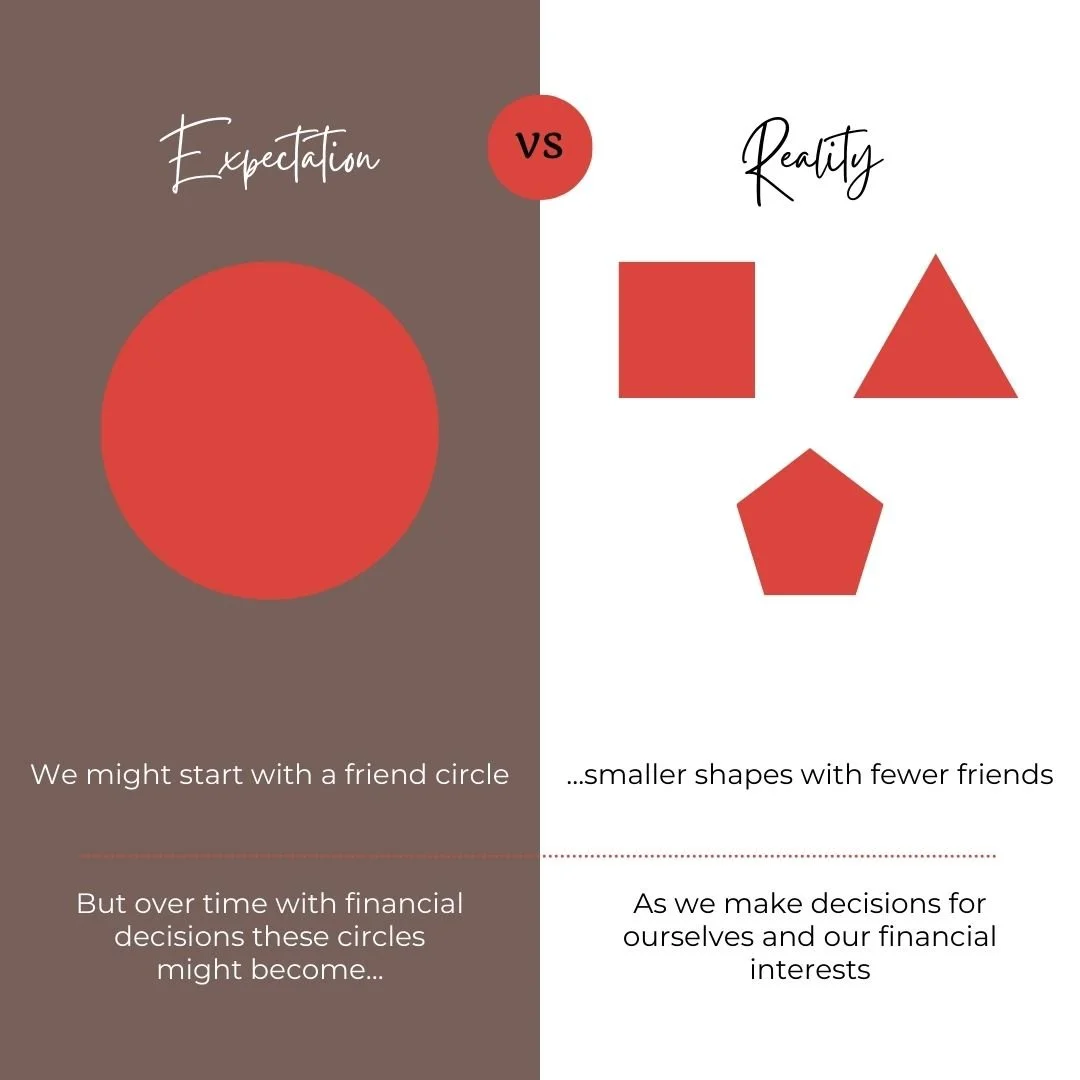Financial Anxiety: How to stabilize in the short-term and recover long-term
Financial anxiety is a common experience that affects many people, regardless of their profession or financial status. However, if you are a highly successful professional, you may experience unique challenges when it comes to managing your finances and dealing with the stress that comes with it. You might be under significant pressure to maintain your level of success, which can lead to you feeling anxiety and stress. You might also have a higher income and greater financial responsibilities, such as managing investments and assets, which can add to the complexity of your financial situation.
Finding Stability in the Short-Term
First, find ways to cope and establish stability in the short-term:
Practice mindfulness because you may be prone to burnout and stress, which can exacerbate feelings of financial anxiety
Establish a strong financial plan to develop a strategy for managing your assets and investments, as well as setting clear financial goals and timelines
Prioritize self-care such as regular exercise, meditation, and relaxation techniques, which can all reduce stress and relieve acute anxiety
Getting to the Root of Anxiety for the Long-Term
Once you have tried mindfulness, financial planning and self-care to help you cope, you must get to the root of your anxiety in order to feel happier and healthier long-term.
The million dollar question: Why are you feeling so anxious? You’ve made the money you needed and maybe a little more than that but the feeling you were trying to get rid of is still there. Is it that despite your hard work:
You still don’t feel deserving of your money?
You lost some friends/family along the way to earning this money and now you don’t have a proper support system?
You regret some of the sacrifices you made (time, events, relationships, etc.) to make more money and now you feel like you are stuck in this cycle trying to sustain this lifestyle?
The million dollar answer: Money doesn’t wholly change who you are, it just accelerates where you were already going. It gives you a buffer to the anxiety that comes from the outside world, but what about the anxiety coming from inside you: the guilt, shame, judgment, criticism and finally the pressure to be something you’re not. Money might actually make these feelings worse by intensifying them because people see only the most optimized version of you without the guilt, shame, judgment and criticism you ruminate about on the inside.
The Key to Recovery: Relationships
In order to achieve success, you probably sacrificed relationships so you have your buffer now but you lost your true safety net along the way. Successful people don’t have friend circles as much as they have friend squares or friend triangles that get created as relationships change over time.
Ultimately, one of the most important long-term solutions to your financial anxiety is seeking support from others. This may involve talking with trusted friends, colleagues/peers (outside of work), family members, joining a support group or seeking professional therapy/counseling. Having a strong support system can provide a sense of reassurance and help highly successful professionals feel more in control of their financial situation. Understanding these inside feelings in therapy when you are feeling lost or lonely is one of the best investments you can make for your long term future.
Learn more by visiting these resources:
GCF Global: Money Basics Dealing with Financial Anxiety
Read more articles written by Jasmeet by clicking his name below




